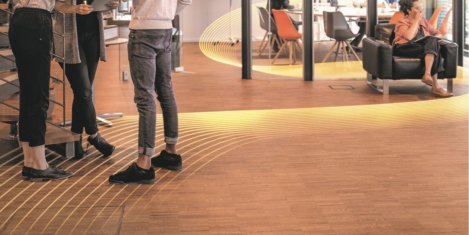To provide the best experiences, we use technologies like cookies to store and/or access device information. Consenting to these technologies will allow us to process data such as browsing behaviour or unique IDs on this site. Not consenting or withdrawing consent, may adversely affect certain features and functions.
The technical storage or access is strictly necessary for the legitimate purpose of enabling the use of a specific service explicitly requested by the subscriber or user, or for the sole purpose of carrying out the transmission of a communication over an electronic communications network.
The technical storage or access is necessary for the legitimate purpose of storing preferences that are not requested by the subscriber or user.
The technical storage or access that is used exclusively for statistical purposes.
The technical storage or access that is used exclusively for anonymous statistical purposes. Without a subpoena, voluntary compliance on the part of your Internet Service Provider, or additional records from a third party, information stored or retrieved for this purpose alone cannot usually be used to identify you.
The technical storage or access is required to create user profiles to send advertising, or to track the user on a website or across several websites for similar marketing purposes.
 Siemens Smart Infrastructure has launched a smart building suite designed to create more efficient and flexible workplaces where people are at the core. The suite of IoT (Internet of Things) enabled devices, applications and services turn offices into a competitive advantage for companies. (more…)
Siemens Smart Infrastructure has launched a smart building suite designed to create more efficient and flexible workplaces where people are at the core. The suite of IoT (Internet of Things) enabled devices, applications and services turn offices into a competitive advantage for companies. (more…)









 Over half of American workers feel they have no one to turn to with a workplace issue, claims new research. The survey conducted by OnePoll on behalf of
Over half of American workers feel they have no one to turn to with a workplace issue, claims new research. The survey conducted by OnePoll on behalf of 








 Insider data breaches are a major concern for 97 percent of IT leaders, according to new research. About three quarters believe that employees have put data at risk in the past 12 months accidentally (78 percent) or intentionally (75 percent). When asked about the implications of these breaches, more than two in five said financial damage would be the area of greatest impact.
Insider data breaches are a major concern for 97 percent of IT leaders, according to new research. About three quarters believe that employees have put data at risk in the past 12 months accidentally (78 percent) or intentionally (75 percent). When asked about the implications of these breaches, more than two in five said financial damage would be the area of greatest impact. 


 Global spending on smart cities initiatives will total about $124 billion this year, an increase of nearly a fifth on 2019, a new
Global spending on smart cities initiatives will total about $124 billion this year, an increase of nearly a fifth on 2019, a new 
 New research has been published aimed at understanding trends, practices and priority areas for improving employees’ experience and creating better places to work. The report,
New research has been published aimed at understanding trends, practices and priority areas for improving employees’ experience and creating better places to work. The report, 








February 24, 2020
Ergonomics, movement and the evolutionary necessity of pain
by Mark Eltringham • Comment, Wellbeing, Workplace design